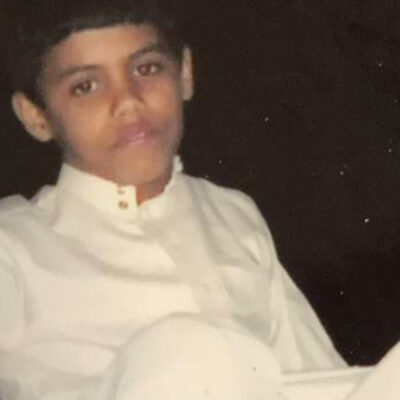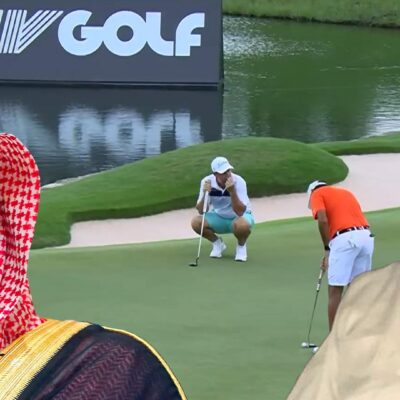Saudi Arabia and the death penalty: Everything you need to know about the rise in executions under Mohammed bin Salman
The rate of executions in Saudi Arabia has almost doubled since King Salman and his son Mohammed bin Salman came to power in 2015, as revealed in a new report by Reprieve and ESOHR.
Read on to find out how the death penalty is used in Saudi Arabia and how it has drastically increased under Mohammed bin Salman.
Does Saudi Arabia have the death penalty?
Saudi Arabia is known to be one of the world’s most deadly executioners. Between 2010-2021, at least 1,243 people were executed. In 2022, at least 147 people were executed.
The six bloodiest years of executions in Saudi Arabia’s recent history have all occurred under the leadership of Mohammed bin Salman and King Salman (2015, 2016, 2017, 2018, 2019 and 2022). From 2015-2022 (King Salman came to power in 2015) there was an average of 129.5 executions per year – that’s a rise of 82%.
There is no sign of Saudi Arabia ending the death penalty. In 2022, at least 147 people were executed, with 81 people killed in a single day.
What crimes can you get the death penalty for?
Saudi Arabia retains the death penalty for a wide range of offences across three categories in Islamic law: Qisas (retributive), Had (mandatory) and Ta’zir (discretionary). Within these categories, judges in Saudi Arabia retain wide-ranging powers to determine what behavior may constitute a criminal offence and its resulting punishment, including the death penalty.
Reprieve’s 2023 report, Bloodshed and Lies: Mohammed bin Salman’s Kingdom of Executions, is the first and most extensive investigation into executions in Saudi Arabia. It shows that between 2010 and 2021, the types of crimes resulting in executions could be classified into the following groups:
- Murder
- Drugs trafficking, including smuggling
- Sexual offences
- Formation of, or membership with, an organised criminal group or proscribed group
- Kidnapping or false imprisonment accompanied by assault, burglary or robbery
- Sedition, treason and other state security offences
- Witchcraft and sorcery
International law requires states that retain the death penalty to limit its application to “the most serious crimes”, widely accepted to mean intentional killing.
How has Saudi Arabia used the death penalty in 2022?
2022 was one of the bloodiest years on record in Saudi Arabia’s recent history. Our investigations show that at least 147 people were executed in Saudi Arabia in 2022. 81 people were killed in one single day, in the Kingdom’s largest mass execution in its history on 12 March.
The true number of how many people are facing the death penalty in Saudi Arabia is unknown because the authorities keep capital trials and death row shrouded in secrecy. That is why the findings of Reprieve’s report are vital in unveiling the truth about this bloody regime.
Saudi Arabia’s judicial system – the legal system and judgments made in a court of law – is known for being unjust. Legal decisions, especially around the death penalty, are taken behind closed doors, court documents are forbidden from being published, charges are changed, and court sessions are indefinitely postponed, to name a few examples. Reprieve investigations have found that fair trial violations and torture are endemic in death penalty cases, including the cases of child defendants.
Our investigations have even found names of executed people where there were no public records of them being either imprisoned, charged or being given a death sentence.
Executions in Saudi Arabia between 2010-2021
In Reprieve and ESOHR’s most recent report, it was uncovered that the Kingdom of Saudi Arabia executed at least 1,243 people between the years of 2010-2021 but because Saudi Arabia does not comply with the UN requirements on publishing information on its use of the death penalty, the real number could be higher.
Has the rate of executions under Crown Prince Mohammed bin Salman’s leadership risen?
The rate of executions under Mohammed bin Salman has risen drastically since he came to power. Under his leadership, the past six years have been the bloodiest years of executions in Saudi Arabia’s recent history. In 2015, Mohammed bin Salman’s father ascended to the throne, marking the start of Mohammed bin Salman’s grip on power. Between 2015 and 2021, the execution rate increased by 82%.
The six bloodiest years of executions in Saudi Arabia’s recent history have all occurred under the leadership of Mohammed bin Salman and King Salman (2015, 2016, 2017, 2018, 2019 and 2022).
Maya Foa, Reprieve DirectorThe explosion in the number of executions in Saudi Arabia under Mohammed bin Salman is a crisis the international community cannot continue to ignore. Every data point in this report is a human life taken. The Saudi death penalty machine chews up children, protesters, vulnerable women in domestic service, unwitting drug mules and people whose only ‘crime’ was owning banned books or speaking to foreign journalists. And all while MBS lies to the world that he has reformed the system to reduce the number of people executed.
Do minors in Saudi Arabia receive the death penalty?
Saudi Arabia has a history of handing out the death penalty to minors. Reprieve client Abdullah al-Howaiti was 14-years-old when he was arrested, tortured and forced to confess to a crime he could not have committed. He was still a minor when he was handed the death penalty.

A group of UN Legal experts have called on Saudi Arabia to annul Abdullah al-Howaiti’s second death sentence because he did not receive a fair trial. The Special Rapporteurs wrote that “it is inherently cruel to execute children,” and called on Saudi Arabia to “abolish the imposition of the death penalty for juveniles for all crimes, without exception.”
At least 15 child defendants – those who committed ‘alleged’ crimes when they were minors – have been executed since 2013, despite Saudi Arabia announcing they were getting rid of the death penalty for those who committed crimes when they were minors.
In 2021, Mustafa al-Darwish, who was on death row due to an alleged crime committed when he was just 17-years-old, was executed.
Are foreign nationals at risk of receiving the death penalty in Saudi Arabia?
From 2010 to 2021, Saudi Arabia executed 490 foreign nationals, which makes up 39% of the total number of executions that took place in the Kingdom between those years.
The Kingdom executed nearly three times more foreign nationals for drug offences than it did Saudi nationals, despite foreign nationals making up only 36% of the population.
Saudi Arabia has the third largest migrant population in the world. As of 2021, there were approximately six million migrant workers residing in Saudi Arabia.
Can women in Saudi Arabia receive the death penalty?
Women face the death penalty in Saudi Arabia and between 2010-2021, 31 women were executed. Almost three-quarters of those executed were foreign nationals and of those foreign nationals, at least 56% were domestic workers.
Tuti Tursilawati was born in Indonesia and arrived in Saudi Arabia in September 2009 to work for a family. Tuti’s employer regularly sexually abused her. In May 2010, as her employer attempted to rape her, Tuti hit him with a stick in self-defence, which led to his death. She fled the house to try and get away, but she was found by a group of nine men who gang raped her. Tuti was arrested by police a week later. In June 2011, Tuti was found guilty of murder and sentenced to death. After eight years in prison, she was executed by beheading.
How is Mohammed bin Salman using sports to distract from the death penalty?

Mohammed bin Salman: Keep your blood-stained hands off sports
Crown Prince Mohammed bin Salman is trying to use sports to distract the world from his human rights abuses
Sign nowMohammed bin Salman – and his regime – are trying to distract the world from his human rights abuses by buying sports clubs like Newcastle United, creating series and tournaments like the LIV Golf Tour all while they commit some of the worst human rights abuses in the world: handing out the death penalty and executing people in mass executions. This is called sportswashing.
Sportswashing is when an individual, organisation or government uses sports to try and improve their image. Washing away the dirt from their tarnished reputation.
We all love sports. But we must speak out when sporting events are used by a regime to launder its reputation and distract from child defendants facing the death penalty – even when it involves the world’s most loved players like Ronaldo.
What can you do to stop Mohammed bin Salman’s bloody regime from executing people?
The Saudi Arabian government is powerful, but together, we can shine a light on the reality of the regime.
Reprieve investigators, lawyers and campaigners work to defend our clients in Saudi Arabia by producing ground-breaking reports to shine a light on the human rights abuses by the Saudi leadership and we pressure governments to take a stand against Saudi Arabia’s use of the death penalty.
We have helped get Saudi Arabian clients home before, and we can do it again. The Saudi Arabian regime cares about its image and so the Reprieve community – made up of nearly 100,000 of us – has power. In February 2022, one of our three clients who were minors when they were locked up got to go home, after almost ten years on death row.
This work is only possible with the support of the Reprieve community who sign petitions, write to their MPs, email organisations like Saudi Arabia’s Human Rights Commission and fund our work where possible.
Read the full report, Bloodshed and Lies: Mohammed bin Salman’s Kingdom of Executions.
How can you contribute to these types of investigations?
Become a Reprieve Member
The work of our investigators, lawyers and campaigners when it comes to investigations like these take a long time. These types of investigations rely – and are only possible – because of the donations that people in the Reprieve community give on a monthly basis.
Please consider donating monthly to fund this life-saving and life-changing work.